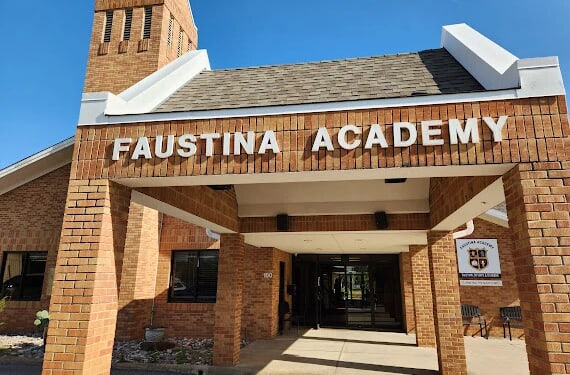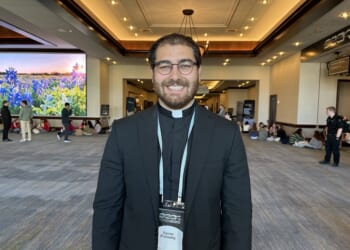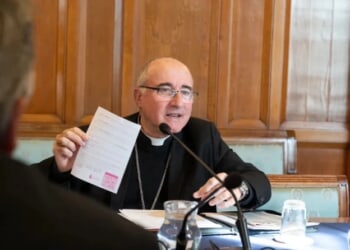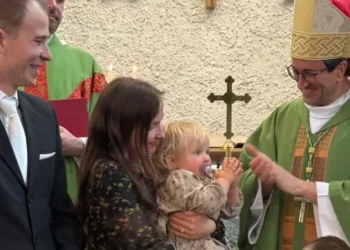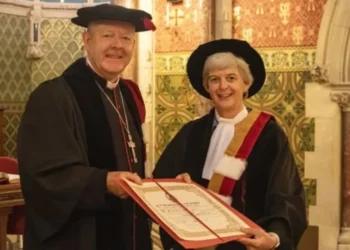CNA Staff, Oct 30, 2025 /
06:00 am
As the harmful effects of smartphone use on children become more well known, one school in the Dallas-Fort Worth metroplex is partnering with parents to enforce a no-social-media policy and witnessing students flourish as a result.
Faustina Academy, a K–12 private, independent Catholic school in Irving, Texas, asks parents to formally commit to a school policy of keeping their kids socia-media-free while enrolled.
In addition to asking families to commit to prohibiting TikTok, Instagram, Snapchat, and CapCut, Faustina students have never been permitted to have phones with them during school hours.
Student drivers must leave their phones in their cars during the school day and younger high school students who need a phone for after-school activities turn them in to the office in the morning and pick them up after school and can only take them out once they are off campus.
In the school’s early days, years before the smartphone’s launch, Christina Mehaffey, principal since the school’s founding in 2003, told CNA she paid attention to technology trends, researching MySpace and other early social-networking sites available on desktop or laptop computers.
She concluded the sites “opened doors to inappropriate material” such as pornography and violence and “tweaked the tech policy to be more restrictive” over the years by informally asking parents to keep their children off devices at home (they were never allowed to have phones during the school day). She also asked parents to limit their children’s video game time.
In 2017, after seeing the effects of years of smartphone use and social media apps on the children, Mehaffey began asking parents to prohibit social media use among students.
She held two weeks of mandatory parent meetings for every grade level, discussing the harms of popular smartphone apps that were “drawing kids away from reality” and exposing them to “horrifying” content that was “right at their fingertips.”
Mehaffey brought in an IT expert to explain to both parents and students that the app and smartphone creators “intentionally” made the devices and apps addictive because “they knew kids don’t have self-control; all for the sake of making money.”
The expert told parents that kids could easily access content so harmful it was “far beyond what anyone could even imagine,” Mehaffey said.
“Parents were amazed” at what they learned, she said, and 100% were willing to verbally commit to keeping their children off social media.
Mehaffey said it was necessary that every parent “get on board” in order to address the “collective action problem, the fear of missing out” that would be present among the students if every family did not have the same policy at home.
Speaking of the overwhelming support of the parents, Mehaffey told CNA that many parents even “asked me to just make a school-wide policy prohibiting social media so they would be relieved of the burden of having to enforce the rules. A few parents said: ‘Our lives will be easier if the school makes it a policy.’”
So, in 2022, the school’s official policy became “no social media use by Faustina students.”
“Every single parent signed on,” Mehaffey said.
Heidi Maher, whose family has been at Faustina since 2020, told CNA her family already had a no-social-media policy, but when Mehaffey took the no-phone policy in school a step further and banned social media, “it was a huge blessing to me as a parent. It took that battle off the table. We have enough battles as parents. If no one else has social media, I don’t have to battle with my children.”
(Story continues below)
Subscribe to our daily newsletter
At previous schools her children attended, Maher said “they weren’t willing to lay down the law on more controversial social issues and they weren’t being direct enough about what being Catholic means.”
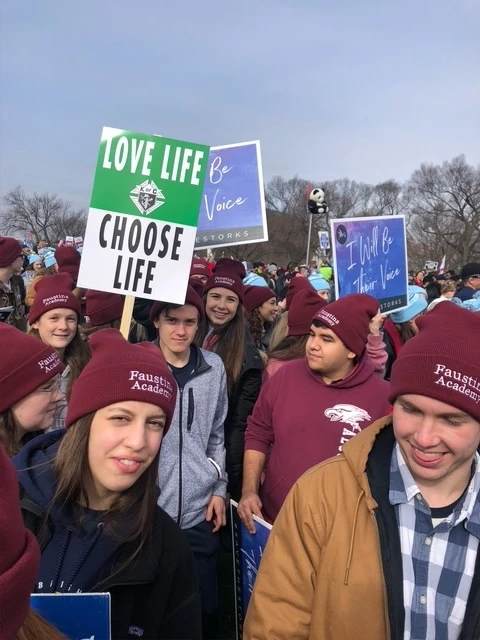
“Kids are catechized on the playground,” Maher said. “Their peers, and what their peers’ families are doing, affect them, regardless of what their teachers say.”
“My kids have grown up in one of the most liberal neighborhoods in Dallas. But when it came to education, we wanted an orthodox Catholic school,” she said.
Since the policy change, Maher said she now sees a level of innocence in her children and their friends that she has not seen in a long time.
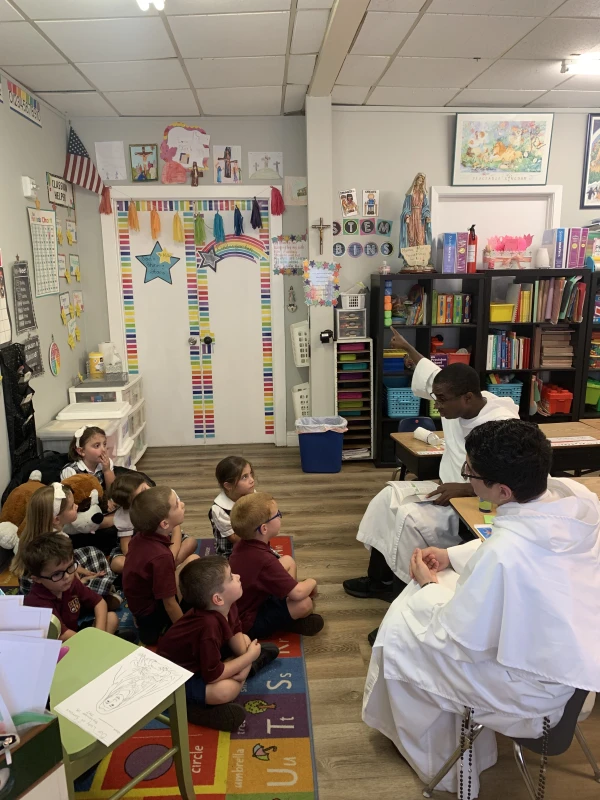
Jane Petres, who has two daughters at the school, agreed, telling CNA she appreciates raising her family among “mostly like-minded families” and school staff whom she can trust.
“The other parents here seem very ‘with it’ and proactive,” she said of Faustina. “You can ban everything in the world, but unless the parents are enforcing it, kids are still going to be exposed to harmful things.”
She said that at a previous school, an eighth-grade girl became involved with a 45-year-old man (who she thought was a teenage boy) through social media, and rather than recognizing the dangers and changing their policies, the school hushed it up.
Every year, the school hosts parent orientations where Mehaffey tells them that “our purpose on earth is to get people to heaven. It has to be in everything we do; in our choices, friendships, our technology use, everything.”
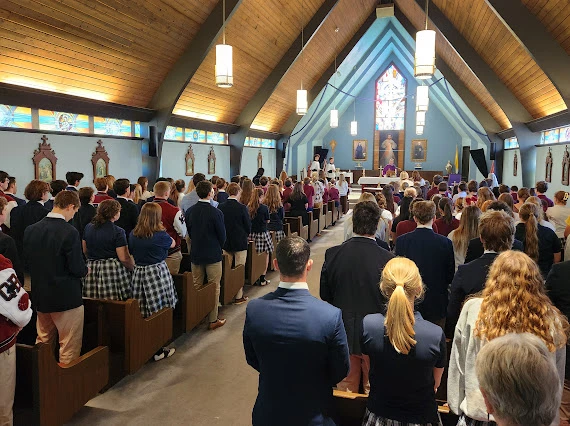
“We want a school where everyone is on the same page, but we’re open to all,” Mehaffey said. “If someone comes in who isn’t Catholic, they have to commit to doing things the way the school does. Not only the technology policy but also prayers, the Mass, all of it. We’re going to teach the truth.”

